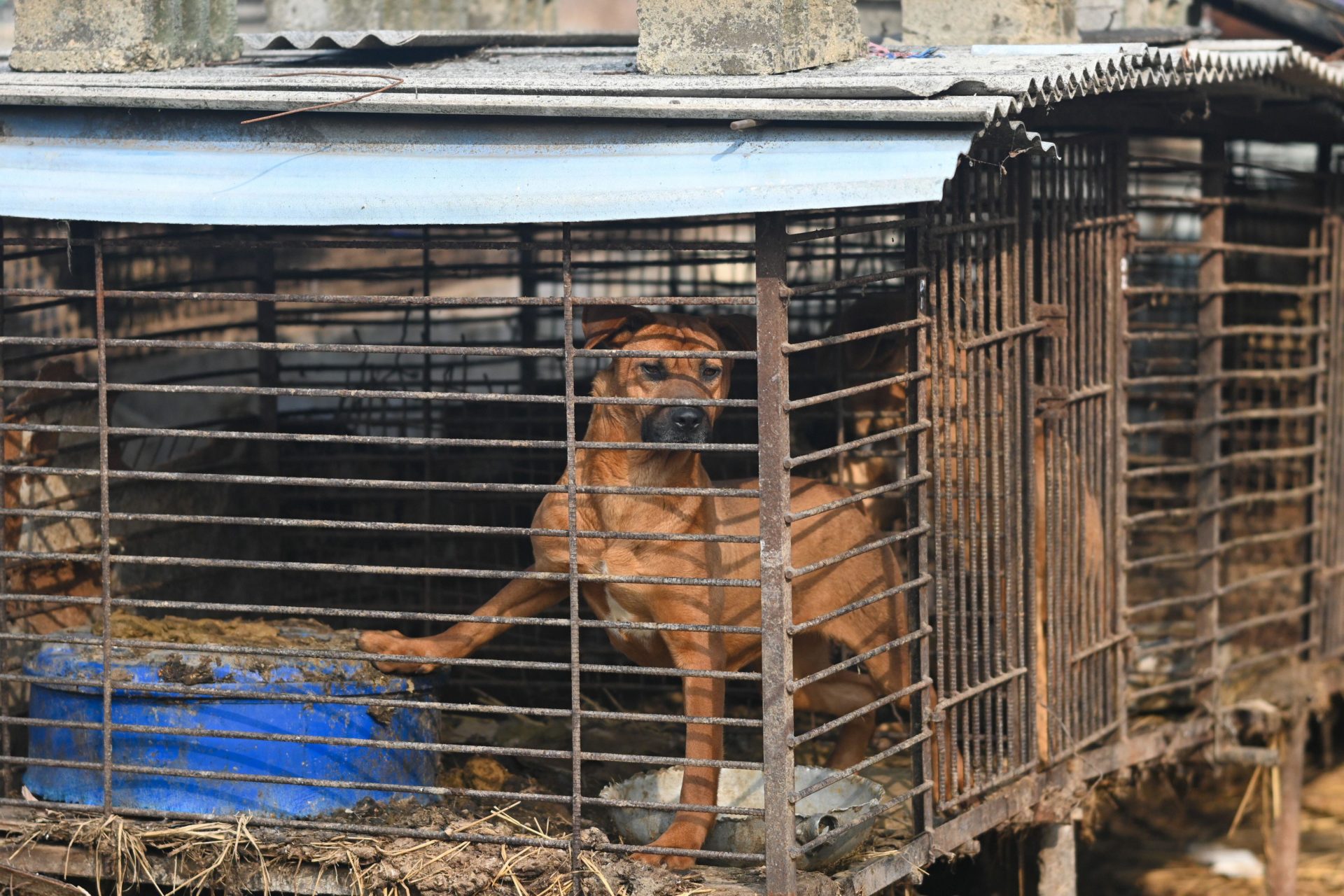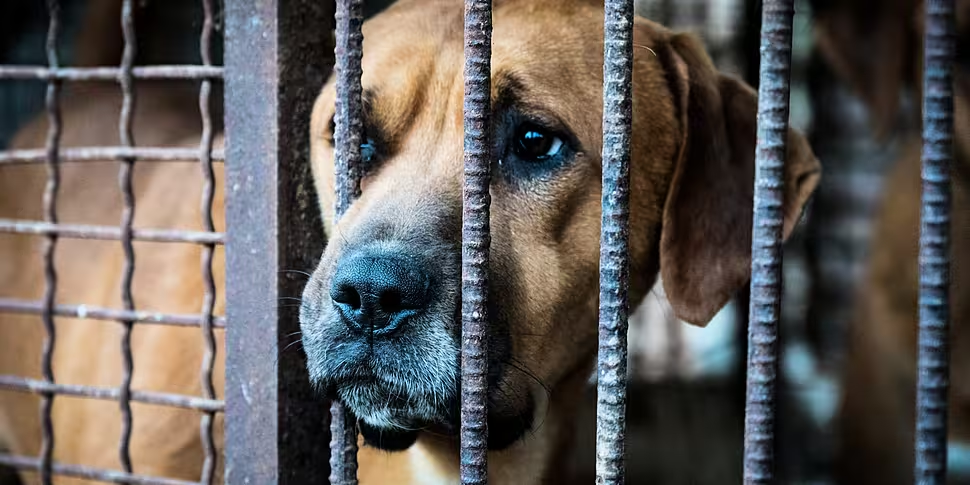South Korea has voted to ban the dog meat trade.
Hundreds of thousands of dogs are farmed and slaughtered for food in the Eastern Asian country.
It is one of several countries where people have eaten dog meat for centuries; however, attitudes have changed in recent times and demand is now at an all-time low.
The ban, endorsed by South Korea’s parliament on Tuesday, will make the breeding, slaughter and sale of dogs and dog meat for human consumption illegal from 2027.
The ban carries penalties of up to three years in prison or a fine of up to €20,800.
Setting up new dog farms, slaughterhouses and cooking and processing facilities will be banned immediately.
The bill does not include penalties for eating dog meat.
 A dog locked in a cage at a dog meat farm in Asan, South Korea, 08-03-2023. Image: UPI/Alamy
A dog locked in a cage at a dog meat farm in Asan, South Korea, 08-03-2023. Image: UPI/AlamyThe ban was passed by 208 votes to zero; however, dog farmers have said they plan an appeal and protests.
“This is history in the making,” said Humane Society International Korea Executive Director JungAh Chae.
“I never thought I would see in my lifetime a ban on the cruel dog meat industry in South Korea but this historic win for animals is testament to the passion and determination of our animal protection movement.”
Eating dog meat is a centuries-old practice in the country, however, surveys indicate it's now a rarity - mostly undertaken by some older people.
Campaigners say most dogs are electrocuted or hanged, but those in the industry claim slaughtering has become more humane.
Estimates on the number of dogs being bred for meat in South Korea vary.
The country’s agriculture ministry estimated in 2022 that around 1,100 farms were breeding 570,000 dogs to be served at some 1,600 restaurants.
However, the Korean Association of Edible Dogs - made up of breeders and sellers - said the ban would affect 3,500 farms raising 1.5 million dogs as well as 3,000 restaurants.









